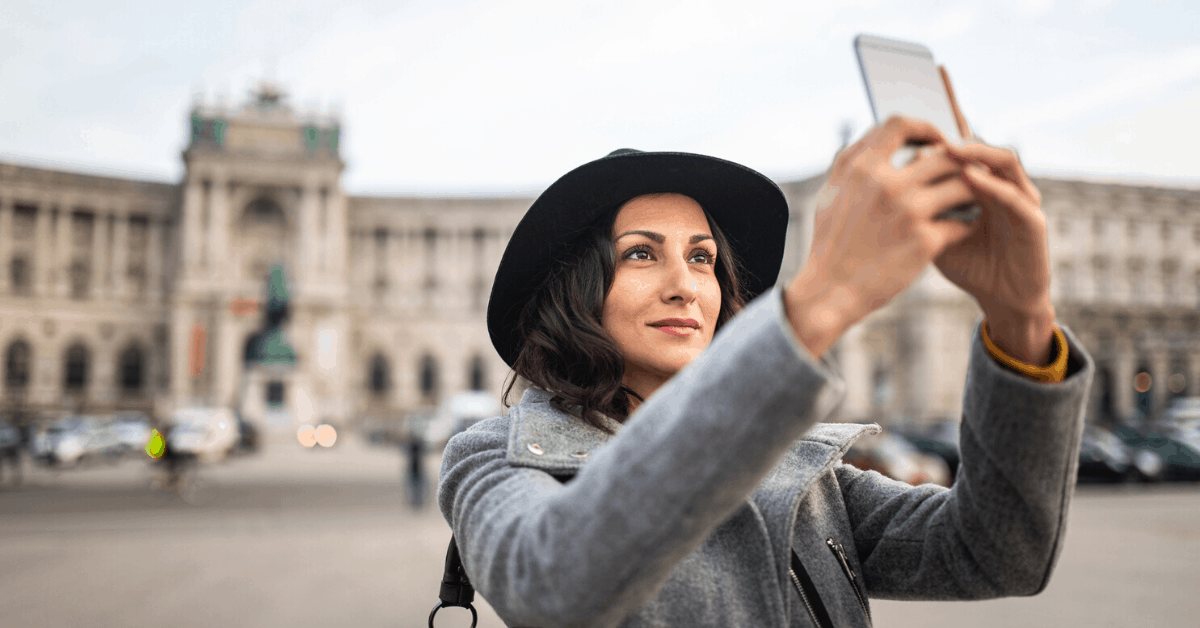We spoke with a data specialist about how you can protect your online privacy while traveling.

It’s unimaginable to travel without electronic devices, which often store large amounts of information about us. As frequent travelers, this means it’s important to take responsibility for our data safety, as cybersecurity laws and regulations around the world vary widely.
We spoke with data specialist Safa Ghnaim from Tactical Tech, an NGO that explores the impacts of technology on society, to find out what you can do to improve your online privacy.
Be cautious of Wi-Fi and Bluetooth
While free Wi-Fi access across airports, cafes, hotel rooms, and public transport can offer a great way to stay connected, it’s good to remember unencrypted Wi-Fi networks are vulnerable to security issues.
Ghnaim said these open networks often allow for a kind of digital eavesdropping, or man-in-the-middle attacks, where data transmitting can be easily intercepted and decrypted.
“If our data is intercepted and decrypted, it allows someone access to personal information such as log-in credentials and banking information,” she said.

When traveling, Ghaim said you should always disable automatic Wi-Fi connectivity to avoid devices connecting to open networks without your knowledge.
“It is (also) important to ensure that hotel Wi-Fi uses an encrypted network, otherwise you can be exposed to risk,” she said.
Similarly, Ghnaim said, it should be best practice to keep your Bluetooth disabled while traveling, as automatic Bluetooth connectivity can also leave devices vulnerable.
Use a VPN and privacy screen
Browsing the web using a secure Virtual Private Network (VPN) means having all your online activity go through a VPN-designated server, creating the illusion that your device is in the same location as the server.
A VPN can also make sure your traffic is encrypted and cannot be intercepted, offering a layer of encrypted protection for your device.
Ghnaim said using a VPN makes it much safer to access open or public Wi-Fi.
“Many of the security concerns that come with using public Wi-Fi can be overcome by using a VPN,” Ghnaim said.
Privacy screen protectors for your laptop or smartphone can also help to protect your privacy when online. Just as a VPN stops a virtual audience through secure encryption, a screen protector addresses those in the physical vicinity by using a filter that allows light to pass through at certain angles.
A screen protector makes it impossible for those around to see sensitive emails or confidential material, especially when working on planes, in airports, or cafes.
Be aware of your location footprints
Ghnaim said you should always turn off location permissions within apps that don’t need this information to function to help curb the spread of your personal information and location.

Ghnaim said for frequent travelers there were additional risks associated with using location settings.
“Consider this safety scenario: you are traveling around, snapping pictures and posting them to your Instagram profile with location stamps,” she said.
“If you are posting in real-time with a caption like, ‘Look at this view right now’, this could be translated as ‘my apartment back home is empty right now’, or ‘I am not in my hotel room but my belongings are’.”
Ghnaim said posting pictures after a trip, making sure social media profiles are private while traveling, and avoiding the use of a precise location when using location stamps could help to mitigate this risk.
Use password managers and two-factor authentication
In terms of digital safety, it’s vital to have strong and unique passwords that are not repeated across different platforms and to regularly change passwords.
Using a dedicated password manager offers an easy way to generate and store passwords across your devices. Ghnaim recommended passwords managers 1Password and KeePassXC to protect login credentials and other sensitive data.
The security of a password can be also strengthened by using two-factor authentication as an additional step for user verification.
It’s important when traveling frequently to think carefully about which methods of two-factor authentication are used, otherwise, there could be difficulty accessing services, such as bank accounts, when abroad.



